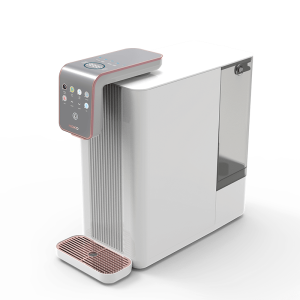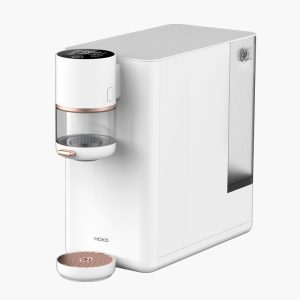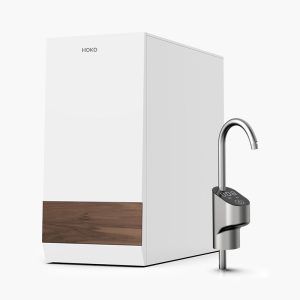In a world where clean and pure water is becoming increasingly scarce, having access to refreshingly pure drinking water is a necessity. With the advancements in technology, we now have RO (Reverse Osmosis) water purifiers that provide us with a reliable and efficient solution for ensuring the purity of our drinking- water supply. RO water purifiers provide a refreshing solution for obtaining pure and clean drinking water.
Their efficiency in removing contaminants, advanced features, and suitability for various settings make them a popular choice. By understanding how they work, considering important factors, and following proper maintenance practices, you can ensure the availability of safe and healthy water for you and your family. Cheers to a healthier lifestyle with RO water purifiers!
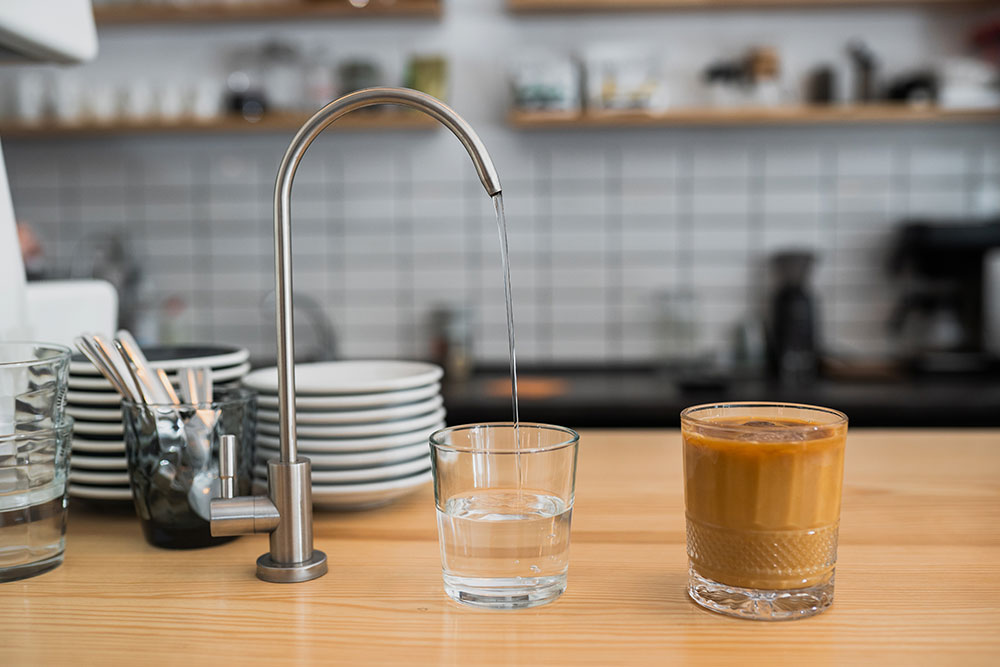
Understanding the Importance of Pure Water
Water is essential for our survival, and consuming pure water is crucial for maintaining good health. Unfortunately, freshwater produced from natural sources often contains impurities that block contaminants such as bacteria, viruses, dissolved solids, chemicals, and heavy metals. This is where water purifiers play a vital role in water conservation, ensuring the water we consume is safe and healthy.
When it comes to ensuring the health and well-being of our loved ones, there’s no compromising on purity. That’s why RO water purifiers have emerged as an essential solution for households and businesses alike. As a leading RO water purifier supplier, we are committed to delivering refreshingly pure drinking water to our customers. Our wholesale offerings provide a cost-effective and reliable solution for meeting the growing demand for clean water.
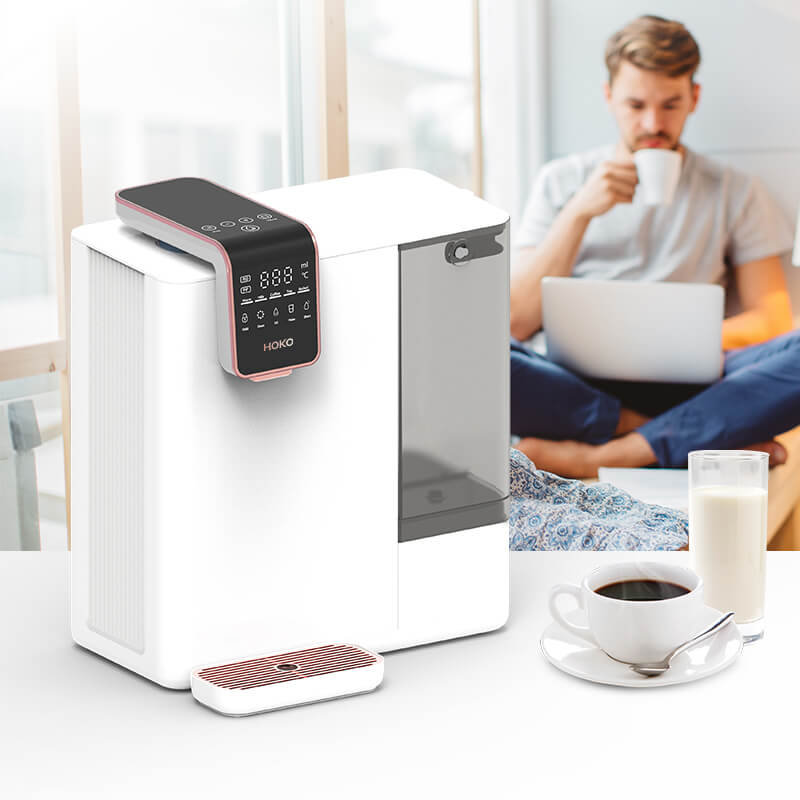
With our cutting-edge technology and expertise, we guarantee that every drop of water that passes through our RO water purifiers undergoes a rigorous filtration process, removing impurities, contaminants, and even the tiniest of particles. Trust in our wholesale RO water purifiers to safeguard the health and well-being of your loved ones, providing them with nothing but the purest, cleanest water possible.
The Role of Water Purifiers
Water-filtering water purifiers are devices designed to remove contaminants from water, making it safe for consumption. Among the various types of water purifiers available, RO water purifiers have gained immense popularity due to their efficiency in removing impurities in feed water and providing clean drinking water.
Benefits of RO Water Purifiers
RO water purifiers offer several benefits that make them a preferred choice for many households. Firstly, they effectively eliminate harmful contaminants, including bacteria, viruses, pesticides, and heavy metals. Secondly, they improve the taste and odor of water by removing dissolved impurities. Additionally, RO water purifiers are energy-efficient and cost-effective in the long run, as they eliminate the need for purchasing bottled water.
Reverse osmosis water purifiers offer a range of benefits that make them a popular choice among consumers. These advanced water filtration systems utilize reverse osmosis technology to remove impurities and provide clean, purified water for drinking and cooking. The reverse osmosis water good the prs involves passing water through a semipermeable membrane to eliminate contaminants such as bacteria, viruses, heavy metals, and chemicals.
Additionally, these systems often incorporate sediment and carbon filtration stages, which further enhance the water quality by eliminating larger particles and improving the taste and odor of wastewater. By investing in a reverse osmosis water system, individuals can enjoy the convenience of having access to clean, safe drinking water right from their tap, eliminating the need to purchase bottled water.
This not only saves money but also reduces plastic waste, promoting a more sustainable lifestyle. Moreover, the superior purification provided by carbon block and reverse osmosis systems ensures high-quality water flows and hydration, offering peace of mind regarding the water’s safety and taste. Whether for residential or commercial use, the incorporation of carbon filtration and other reverse osmosis systems in city treatment plants guarantees an effective and reliable water purification solution.
How to Do RO Water Purifiers Work?
Reverse Osmosis Process Explained
RO water purifiers utilize a process called reverse osmosis to purify water. It involves the use of a semipermeable membrane that allows water molecules to pass through while trapping impurities. The process stage reverse osmosis is driven by hydraulic pressure, forcing water through the membrane and leaving behind fewer contaminants.
Key Components of RO Water Purifiers
RO water purifiers consist of several essential components, each playing a crucial role in the purification process. These components include a pre-filter, sediment filter, carbon filters, activated carbon filter cartridge, RO membrane, post-filter, and storage tank. Each component contributes to the overall effectiveness of the purification process.

Choosing the Right RO Water Purifier
Consideration Factors
When selecting an RO system or water purifier for your home or office, it’s important to consider various factors. These include water quality, purification capacity, storage tank capacity, installation requirements, and budget. Assessing these factors will help you determine the most suitable RO system or water purifier for your specific needs.
When it comes to choosing the right RO water purifier, there are a few important factors to consider. Firstly, it’s essential to evaluate the specific needs and preferences of your household or business. Assessing factors like water consumption, space availability, and budget will help narrow down the options.
Understanding how reverse osmosis systems work is also crucial. These systems utilize a semipermeable membrane to remove contaminants, including bacteria, viruses, heavy metals, and volatile organic compounds, providing clean and safe drinking water. Additionally, it is worth considering the quality and durability of the components used in the reverse osmosis system work itself.
Opting for a stainless steel water purifier is a wise choice as it ensures longevity and avoids potential issues with plastic components. Another crucial aspect is the inclusion of features such as an air gap faucet, which prevents cross-contamination of the purified water. Furthermore, the type of reverse osmosis membrane and sediment filter is important.
An efficient RO system should have a high-quality membrane capable of removing chlorine and other impurities effectively. The sediment filter is responsible for removing dirt and larger particles, ensuring the longevity of water passes the system. By considering these factors, one can make an informed decision and select the ideal RO system and water purifier that suits their specific requirements.
Types of RO Water Purifiers
RO water purifiers come in different types to cater to various requirements. The most common types include under-the-sink RO systems(3000L Undersink Reverse Osmosis System is one type of undersink RO systems product), wall-mounted RO systems, and countertop RO systems(Countertop RO Water Filter Dispenser). Each type has its own advantages and installation options, allowing you to choose the one that best fits your space and preferences.
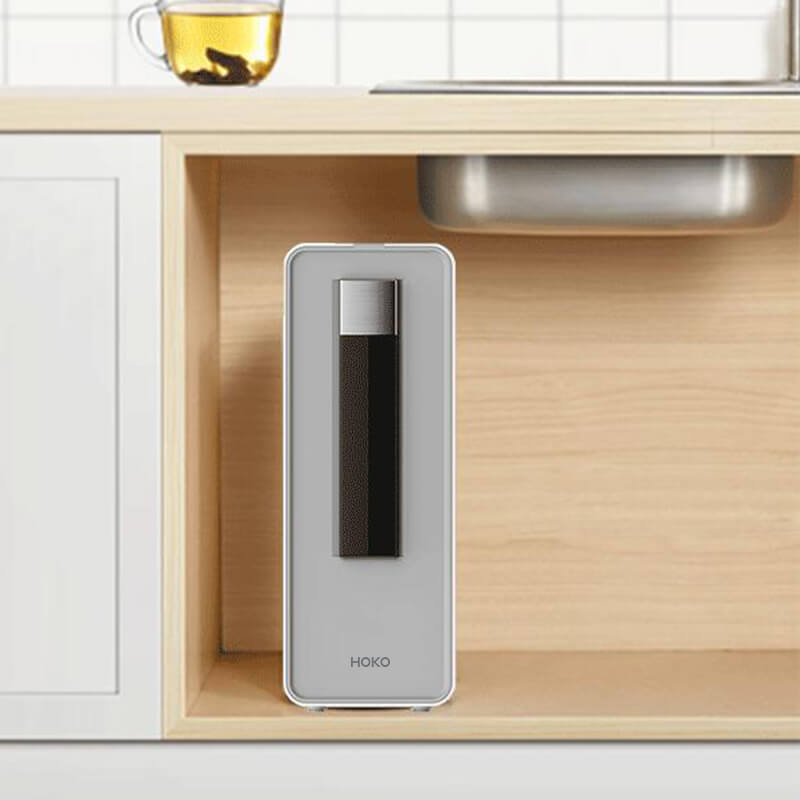
Brand Reliability and Customer Reviews
It’s essential to consider the reliability of the brand when purchasing an RO water purifier. Look for reputable brands that have a proven track record in producing high-quality and durable products. Additionally, reading customer reviews and testimonials can provide valuable insights into the performance and customer satisfaction of specific models.
Installation and Maintenance of RO Water Purifiers
Installation Process
Installing an RO water purifier may require professional assistance, especially for under-the-sink or wall-mounted systems. It’s important to follow the manufacturer’s instructions or seek professional help to ensure proper installation and functionality. Proper installation ensures optimal performance and longevity of the purifier.
Regular Maintenance Tips
To maintain the efficiency and longevity of your RO water purifier, regular maintenance is necessary. This includes replacing filters as per the manufacturer’s recommendations, cleaning the storage tank, checking for leaks or damages, and sanitizing the system periodically. Adhering to maintenance guidelines will ensure that your purifier continues to provide clean and pure water.
Additional Features and Technologies in RO Water Purifiers
UV Purification
Some RO water purifiers come equipped with UV (Ultraviolet) purification technology. UV rays are used to kill harmful microorganisms like bacteria and viruses, providing an additional layer of protection against waterborne diseases.
TDS Controllers
Total Dissolved Solids (TDS) controllers are a feature found in certain RO water purifiers. They allow you to adjust the taste and quality of purified water by controlling the removed dissolved solids and the level of the essential nutrients and minerals present in the water.
Smart Features and App Connectivity
With advancements in technology, many RO water purifiers now offer smart features and app connectivity. These features enable you to monitor water quality, track filter life, receive maintenance alerts, and even control the whole feed water purifier remotely through a smartphone app.
RO Water Purifiers for Different Purposes
Residential Use
RO water purifiers are widely used in residential settings to keep water pressure and ensure the availability of pure and healthy drinking water for the entire family. They provide peace of mind by up water pressure and eliminating common contaminants and impurities from treated water, making tap water safe and even potable water enjoyable to consume.
RO water purifiers are highly efficient and versatile systems that are used for various purposes. A reverse osmosis system, also known as an RO system, is a popular water filtration system that utilizes a semi-permeable membrane to remove the impurities and contaminants from water. The reverse osmosis system removes harmful substances such as bacteria, viruses, heavy metals, and chemicals, ensuring the water’s quality and making it safe for consumption.
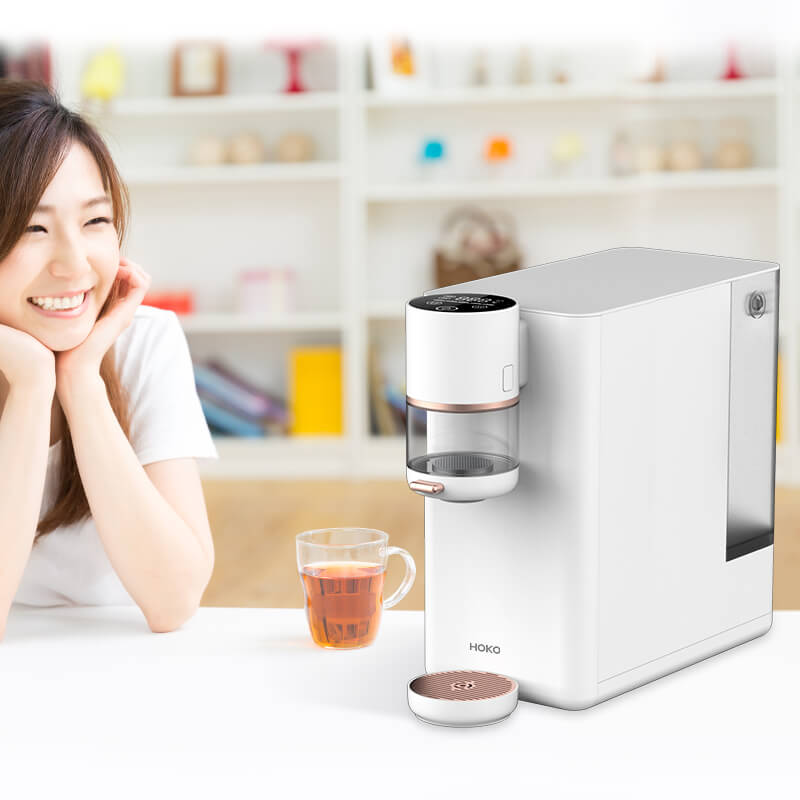
Commercial Use
RO water purifiers are also extensively used in commercial settings such as offices, restaurants, and hotels. These establishments require a large volume of clean, fresh water, for various purposes, including drinking, cooking, and food preparation. RO water purifiers offer a reliable solution to meet the high demands of commercial usage.
With the increasing awareness about the importance of bottled water quality hydration and the environmental impact of plastic bottles, many individuals are turning to RO water purifiers as a reliable alternative. By installing an RO system, one can enjoy the benefits of clean and pure reverse osmosis water but without the need for plastic bottles. Furthermore, stainless steel water bottles are becoming a popular choice for storing reverse osmosis water, as they are durable, reusable, and eco-friendly. The process by which a reverse osmosis system works is quite simple but effective.
Water is passed through multiple stages of filtration, including a sediment filter where the sediment filter removes dirt, and a carbon filter where the carbon block eliminates chlorine and other chemicals. The reverse osmosis membrane then removes contaminants on a microscopic level, resulting in exceptionally pure water.
Although some argue that reverse osmosis water may lack essential minerals, it is important to note that a balanced diet can easily fulfill these requirements. Overall, reverse osmosis water is an excellent choice for hydration and various other purposes, providing a reliable and efficient solution for obtaining clean and safe drinking water.
Conclusion
RO water purifiers are a reliable and efficient solution for obtaining refreshingly pure drinking water. They play a vital role in producing bottled water wastes, removing contaminants and ensuring the safety and health of individuals. By understanding how they work, considering the right factors when choosing one, and following proper installation and maintenance practices, you can enjoy all the conveniences and benefits of clean and pure water in your everyday life.
For high quality RO Water Purifiers, Hokocare.com is leading in the RO Water Purifiers industry as a high quality manufacturer and supplier.
FAQs – Refreshingly Pure with RO Water Purifiers
Q: Are RO water purifiers suitable for well water?
A: Yes, RO water purifiers are effective in treating well water, as they can remove impurities beneficial minerals and contaminants present in it.
Q: How often should I replace the filters in my RO water purifier?
A: The frequency of filter replacement depends on the specific model and water quality. Generally, it is recommended to replace filters every 6 to 12 months for optimal performance.
Q: Can an RO water purifier remove fluoride from water?
A: Yes, the RO membrane water purifiers are effective in removing fluoride from the city water supply. The RO membrane has the ability to filter out fluoride and block contaminants along with other dissolved impurities.
Q: Is it necessary to install a separate faucet for an RO water purifier?
A: It is not always necessary to install a separate faucet for an RO water purifier. Many models come with a dual-feed option that allows you to connect the purified water line to the water flow from your existing faucet, eliminating the need for an additional tap.
Q: Can I use RO-purified water for cooking and other household purposes?
A: While RO purified water is safe for drinking, you can also use it for cooking, making beverages, and other household purposes. The removal of impurities ensures that you have clean and healthy water for all your needs.
Q: How long does the installation process of an RO water purifier usually take?
A: The installation process may vary depending on the complexity of the system and the specific requirements of your space. On average, professional installation can be completed within a few hours.
Q: Are RO water purifiers energy-efficient?
A: Yes, RO water purifiers are generally energy-efficient. They use electricity to power the purification process, but the energy consumption is relatively low compared to other appliances.
